Social media is the ultimate double-edged sword. It’s great for staying connected and entertained, but lurking beneath the surface has some severe social media impacts your mental health. From messing with your self-esteem to increasing anxiety, social media’s influence runs more profound than you think. This post discusses nine shocking ways it might affect you and what you can do about it.
1. Comparison Trap: Feeling Less Than
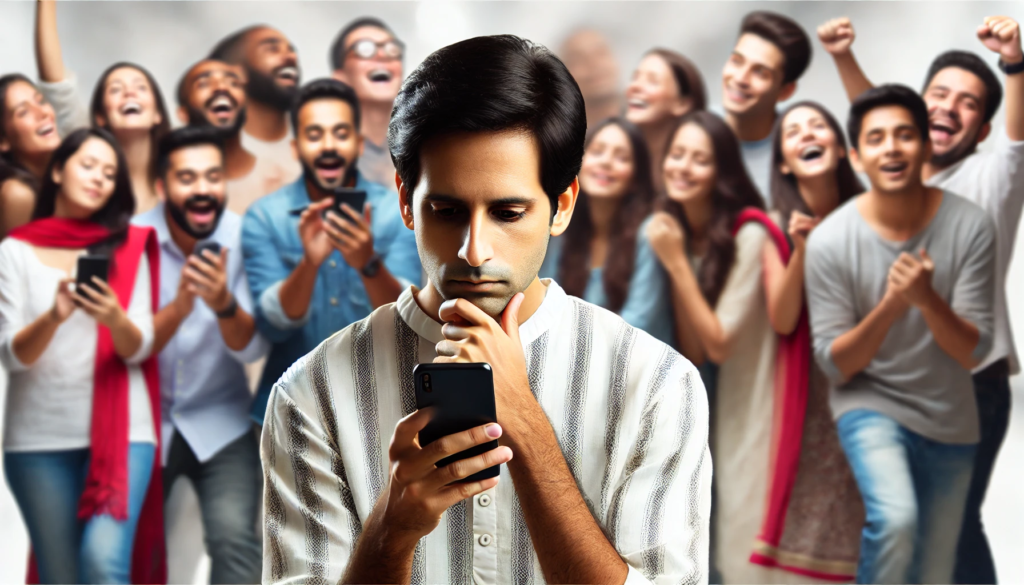
One of social media’s most common side effects is the comparison game. You see friends, influencers, or celebrities sharing their best moments, luxury vacations, perfect bodies, and glamorous events, and suddenly, your life feels a little dull compared to yours.
Why It Hurts:
- Highlight reels: Social media shows only the best parts of people’s lives, which makes it easy to forget you’re comparing yourself to an edited version of reality.
- Perfectionism: Seeing constant posts of perfection can lead you to set unrealistic standards, leaving you feeling like you’re not good enough.
- Low self-esteem: Studies have shown that frequent social media users experience lower self-esteem, leading to feelings of inadequacy.
How to Avoid It:
- Limit your time on apps that make you feel worse.
- Unfollow accounts that don’t inspire or uplift you.
- Remind yourself that everyone has challenges they don’t share online.
Helpful Resources:
- MindPeers: A mental wellness platform that offers self-esteem-building workshops and tools to combat negative thoughts from social media comparisons.
2. Doomscrolling: Feeding the Anxiety Monster
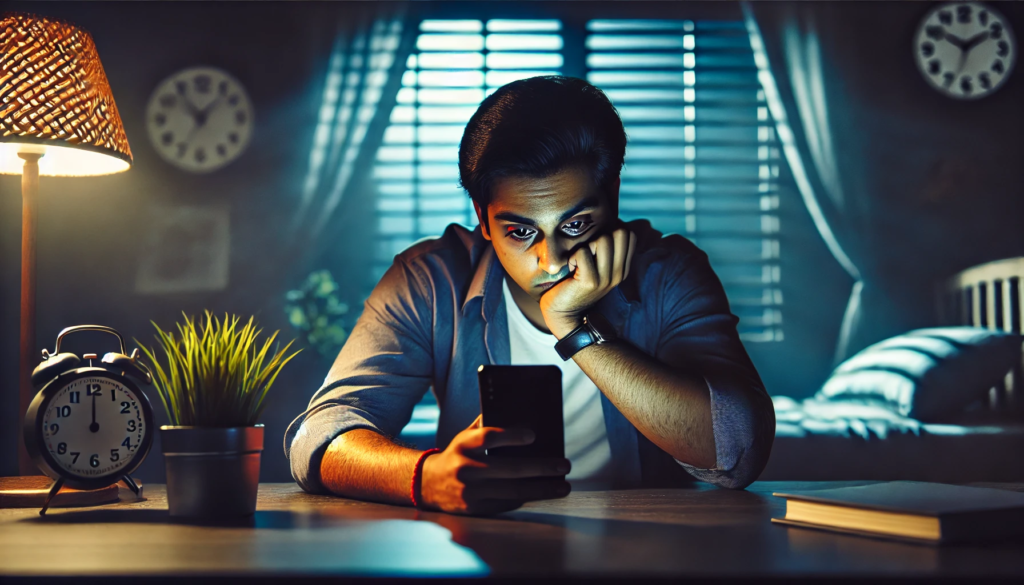
Ever find yourself scrolling through a never-ending feed of bad news? This is known as doomscrolling, and it’s a fast track to overwhelming anxiety. Constant exposure to negative news and events on social media can make the world seem like a dark, scary place.
Why It Hurts:
- Anxiety: Consuming a steady stream of harmful content can lead to heightened anxiety.
- Helplessness: Feeling powerless and overwhelmed when bombarded with global problems is easy.
- Sleep disruption: Doomscrolling, especially at night, can mess up your sleep patterns, leading to fatigue and even more anxiety.
How to Avoid It:
- Set boundaries for how much news you consume daily.
- Take breaks from your phone or use apps that limit screen time.
- Focus on positive content or balance your feed with uplifting stories.
Helpful Resources:
- YourDost: An emotional wellness platform that offers 24/7 counseling to help manage anxiety from overexposure to negative news.
3. Seeking Validation: The Dangerous Search for Likes
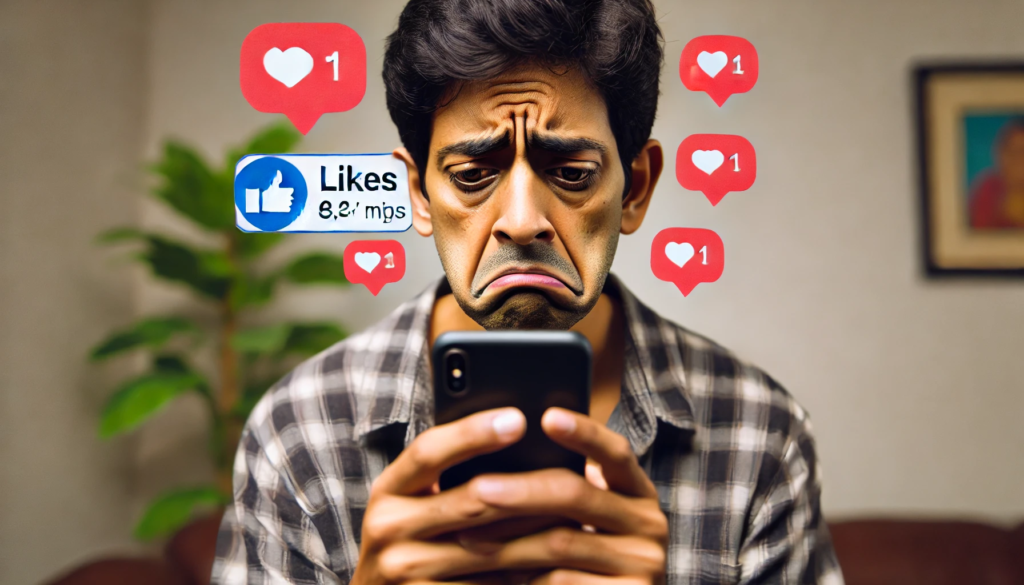
Let’s face it: getting likes, comments, and shares on your posts feels excellent. However, chasing social media validation can become addictive. Over time, relying on others’ reactions for your sense of self-worth can cause some severe harm.
Why It Hurts:
- Addictive behavior: Social media platforms are designed to reward you with dopamine hits every time you receive a like or comment. This can turn into an unhealthy dependency.
- Self-worth issues: If your mood or confidence depends on how many likes you get, you could start to equate your self-worth with online approval.
- Anxiety and stress: Not getting the validation you expect can cause feelings of rejection and increase stress.
How to Avoid It:
- Turn off notifications so you’re not constantly checking for feedback.
- Seek real-life validation through personal achievements and meaningful relationships.
- Create for fun, not for approval. Shift your mindset to value the act of sharing over the response you get.
Helpful Resources:
- Wysa: An AI-powered mental health app that helps you manage self-worth issues through exercises and real-time conversations.
4. FOMO (Fear of Missing Out): Constantly Feeling Left Out
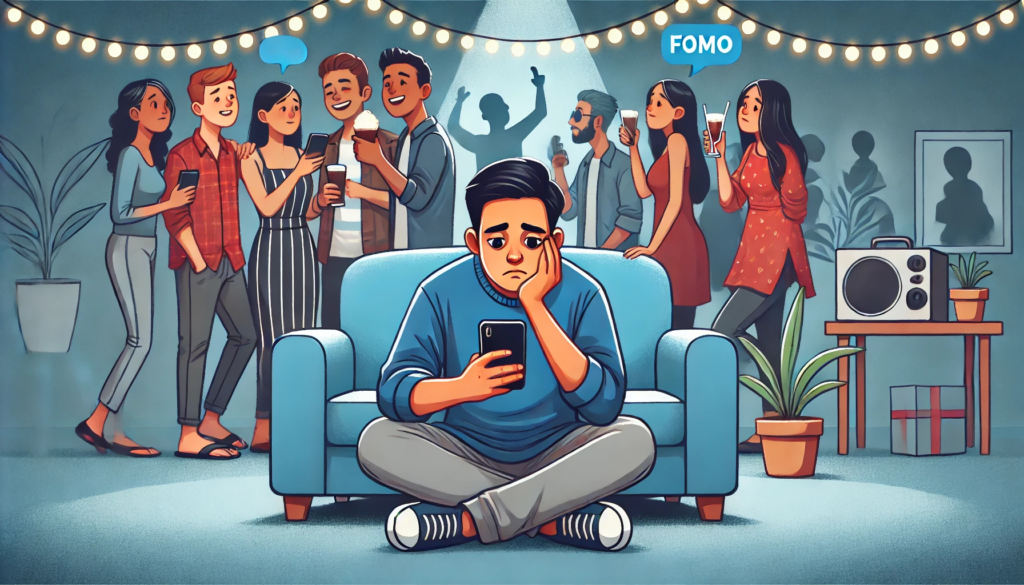
We’ve all been there. You see a friend’s Instagram story of a fantastic concert or a group selfie at a party, and suddenly, you’re struck with a sharp sense of FOMO (Fear of Missing Out). Social media gives us a front-row seat to events we weren’t invited to, and it’s easy to feel like everyone else is having more fun than you are.
Why It Hurts:
- Jealousy: Constant exposure to other people’s highlights can spark jealousy or resentment.
- Insecurity: FOMO can make you feel like you’re not as popular or connected as others, which can trigger anxiety.
- Exhaustion: The pressure to attend every event or be constantly active on social media can lead to social burnout.
How to Avoid It:
- Limit your exposure to specific posts, especially if they make you feel left out.
- Shift your perspective instead of focusing on what you’re missing; appreciate what you have.
- Focus on your life and embrace moments offline where you can find joy and fulfillment without needing social validation.
Helpful Resources:
- InnerHour: A mental health platform offering tools to help manage FOMO, improve mental resilience, and practice gratitude.
5. Screen Time Overload: Mental Health Meltdown

We live in a digital age where screens are unavoidable, but spending too much time on social media can seriously harm your mental health. Excessive screen time has been linked to issues like sleep deprivation, mood swings, and even depression.
Why It Hurts:
- Sleep problems: Too much screen time, especially at night, can interfere with your body’s sleep cycle.
- Reduced focus: Constant scrolling can reduce your attention span and ability to focus on essential tasks.
- Mental fatigue: The never-ending stream of content can lead to mental exhaustion, which can worsen feelings of anxiety or depression.
How to Avoid It:
- Use screen time management tools like apps that monitor or limit your usage.
- Take regular breaks to refresh your mind and reduce strain.
- Prioritize in-person connections over virtual ones, and make time for activities that don’t involve a screen.
Helpful Resources:
- NIMHANS: The National Institute of Mental Health and Neurosciences offers resources on managing screen addiction and balancing digital time.
6. Cyberbullying: The Silent Threat
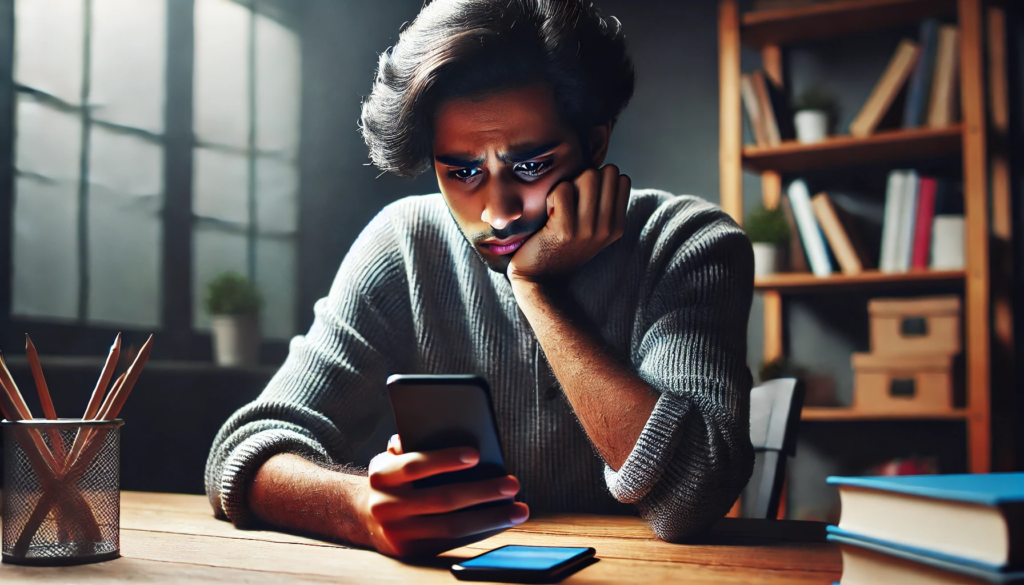
While social media has many benefits, it also provides a platform for cyberbullying, which can have devastating effects on mental health. Whether it’s hurtful comments, harassment, or mean messages, the anonymity of social media can bring out the worst in people.
Why It Hurts:
- Emotional trauma: Victims of cyberbullying often experience anxiety, depression, and low self-esteem.
- Isolation: Being targeted online can lead to feelings of loneliness and isolation.
- Long-term effects: Cyberbullying can leave lasting emotional scars that can impact both personal and professional life.
How to Avoid It:
- Report and block bullies immediately.
- Seek support from friends, family, or professional counseling if you’re experiencing bullying.
- Raise awareness. If someone is bullied online, offer support.
Helpful Resources:
- CyberPsych India: A mental health platform offering support for cyberbullying victims through counseling and legal advice.
7. Social Media Addiction: When You Can’t Stop Scrolling

Have you ever promised yourself you’d check Instagram or TikTok for “just a minute” and then found yourself scrolling for hours? Social media addiction is a real phenomenon, driven by the need to check for updates, likes, and notifications constantly. This compulsive behavior can take over your day, leaving little time for other, more productive activities.
Why It Hurts:
- Time consumption: Social media addiction can take hours of your day, leaving you less time for work, hobbies, or spending time with loved ones.
- Emotional dependency: Relying on social media for entertainment and emotional validation can leave you empty or bored offline.
- Increased anxiety: Constant exposure to information, whether it’s negative news or seeing others’ achievements, can increase stress and anxiety.
How to Avoid It:
- Set time limits on your social media apps.
- Schedule screen-free time where you focus on real-life activities, hobbies, or in-person conversations.
- Recognize the triggers that lead to overuse and learn to redirect your attention.
Helpful Resources:
- Fortis Mental Health: Fortis offers counseling for digital addiction through its mental health programs.
8. Social Isolation: The Irony of Being “Connected”

Ironically, while social media was created to keep us connected, it can increase feelings of social isolation. Time spent online often comes at the cost of in-person interactions, crucial for maintaining strong emotional bonds. Furthermore, shallow connections on social media can’t replace deep, meaningful relationships.
Why It Hurts:
- Superficial interactions: The quality of social media connections is often low, focusing on likes, comments, and shares rather than meaningful conversations.
- Loneliness: While it might feel like you’re engaging with others, relying too much on online interaction can leave you feeling isolated or disconnected from reality.
- Real-life neglect: Spending excessive time online can lead to neglect of in-person relationships, which are the ones that matter.
How to Avoid It:
- Prioritize face-to-face communication whenever possible.
- Make real-life plans with friends and family, even just a simple meet-up.
- Reduce passive scrolling and instead focus on engaging with fewer people more meaningfully.
Helpful Resources:
- Reconnect: A digital wellness app that reduces social isolation by encouraging users to build real-world connections and balance screen time.
9. False Reality: Living in a Bubble
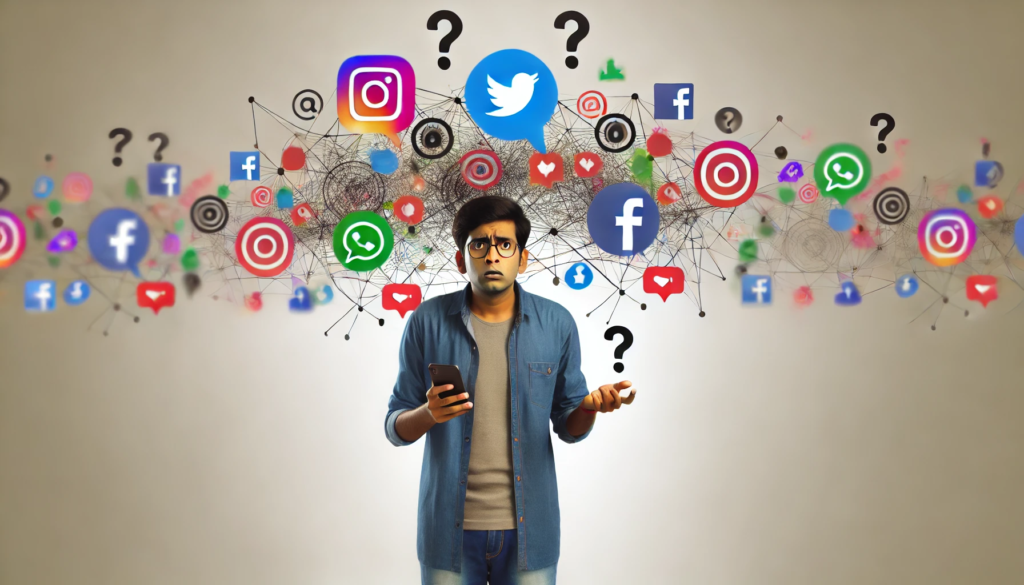
One of social media’s most dangerous aspects is how it can distort your sense of reality. Algorithms are designed to show you more of what you already engage with, creating a filter bubble where you only see content that reinforces your views. Over time, this can limit your perspective and make you believe everyone thinks, acts, and lives like you do.
Why It Hurts:
- Narrow worldview: The more time you spend in a social media bubble, the more you’re exposed to the same ideas and opinions, limiting your understanding of different perspectives.
- Confirmation bias: Social media algorithms feed your biases, reinforcing your beliefs and making it harder to see other points of view.
- Disconnection from reality: Constantly living in a digital bubble can lead to feelings of disconnection from the real world and real-world issues.
How to Avoid It:
- Follow diverse accounts that offer different perspectives.
- Engage in critical thinking and question the content you consume, even if it aligns with your beliefs.
- Take breaks from social media to ground yourself in real-world experiences and conversations.
Helpful Resources:
- TalkToAngel: An online mental health platform offering therapy to help people reconnect with reality and understand the impacts of a social media bubble.
Table: Key Impacts of Social Media on Mental Health
| Impact | Mental Health Consequences | How to Mitigate |
| Comparison Trap | Low self-esteem, anxiety | Limit app time, unfollow toxic accounts |
| Doomscrolling | Increased anxiety, sleep disruption | Set boundaries, focus on positive content |
| Seeking Validation | Addiction, self-worth issues | Turn off notifications, focus on real-life validation |
| FOMO | Jealousy, insecurity | Appreciate what you have, shift your perspective |
| Screen Time Overload | Sleep problems, mental fatigue | Use screen time tools, take regular breaks |
| Cyberbullying | Emotional trauma, isolation | Report/block bullies seek support |
| Social Media Addiction | Wasted time, emotional dependency | Set limits, schedule offline time |
| Social Isolation | Loneliness, shallow relationships | Prioritize in-person interactions |
| False Reality | Narrow worldview, disconnection | Follow diverse accounts, engage in critical thinking |
Conclusion
Social media can be a fantastic tool for connection, creativity, and entertainment, but it also has the potential to impact your mental health if you’re not careful negatively. From comparison traps to screen time overload, the effects can be far-reaching. By understanding these impacts and setting healthy boundaries, you can enjoy the benefits of social media without letting it take over your life.
Visit Free Saving Tips.
FAQ
Social media can lead to anxiety, depression, and low self-esteem, often due to comparison, cyberbullying, and excessive screen time.
It’s when you compare your real life to the highlight reels others post online, leading to feelings of inadequacy.
Doomscrolling is the act of consuming large amounts of negative content, which can worsen anxiety and stress.
Yes, the dopamine hit from likes and notifications can create a habit-forming cycle, making it hard to stop.
FOMO (Fear of Missing Out) occurs when social media makes you feel like you’re missing out on exciting events, leading to jealousy and insecurity.
Use screen time management tools or set timers to limit your usage. Regular breaks help, too!
Yes, relying too much on social media can lead to feelings of isolation and shallow connections.
Cyberbullying can cause emotional trauma, leading to anxiety, depression, and social isolation.
Absolutely! Follow uplifting accounts, set boundaries, and engage in meaningful interactions.
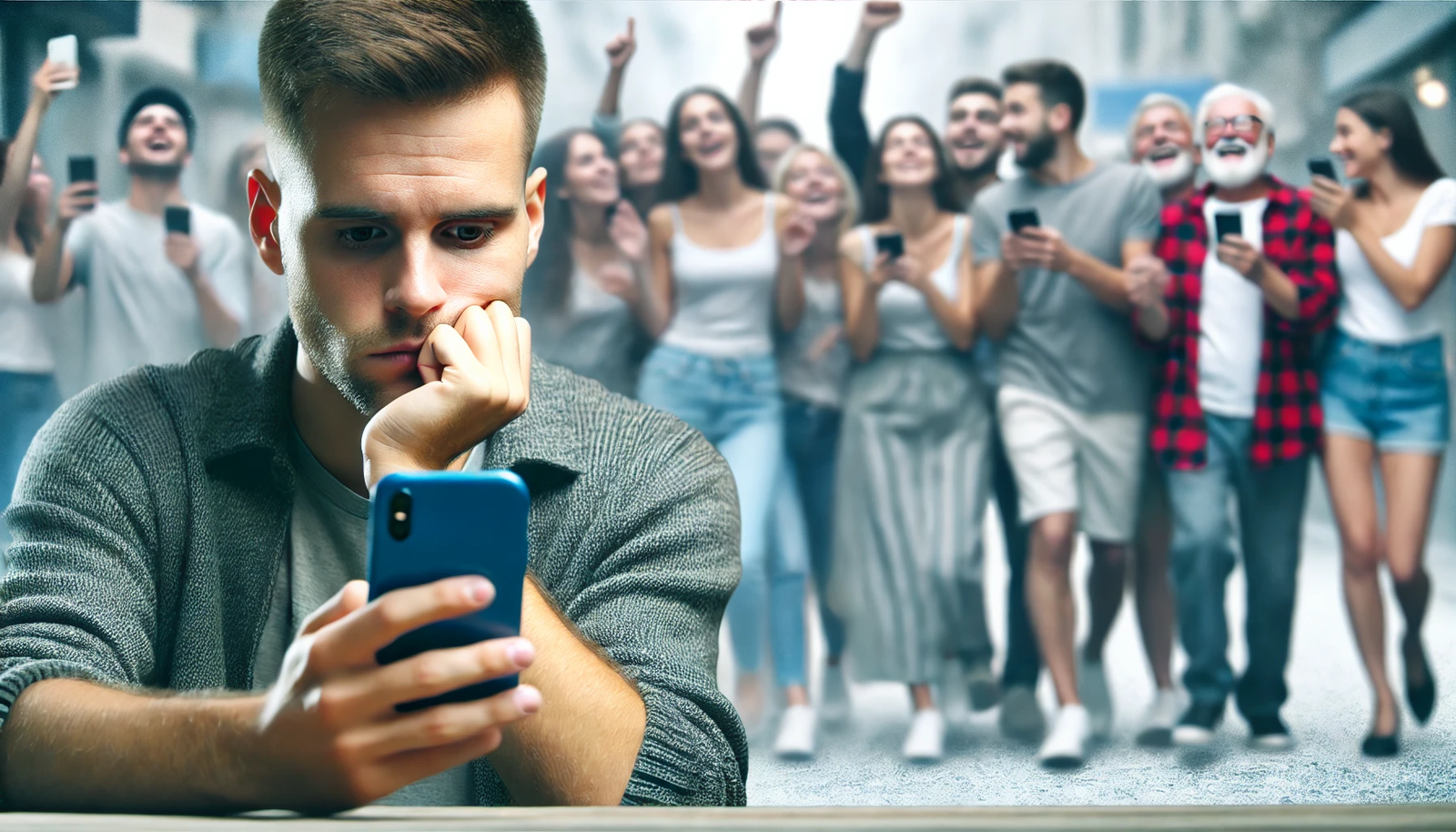


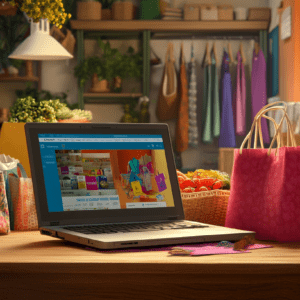

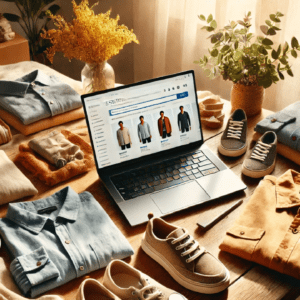

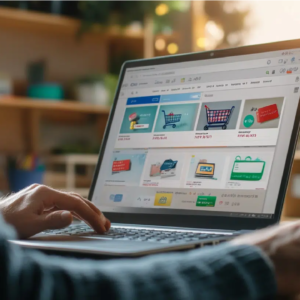

Thank you for your sharing. I am worried that I lack creative ideas. It is your article that makes me full of hope. Thank you. But, I have a question, can you help me?
Thank you for your kind words! I’m glad my article could inspire you. I’d be happy to help—please feel free to share your question, and I’ll do my best to answer it!
Can you be more specific about the content of your article? After reading it, I still have some doubts. Hope you can help me.
Your point of view caught my eye and was very interesting. Thanks. I have a question for you.
Your article helped me a lot, is there any more related content? Thanks!
One of the best blog i never seen it. Thank you for writing this.
Useful information. Thank you
I found this post really helpful! Keep up the great work and continue sharing your knowledge.
I really appreciate this blog it’s amazing blog
I read many of your blogs all are good keep writing.
Very impressive blog 👏
Good day very cool blog!! Guy .. Excellent ..
Amazing .. I will bookmark your web site and take the feeds also?
I am satisfied to search out numerous useful info right here in the publish, we’d like develop extra strategies on this regard, thank you for sharing.
. . . . .
http://mail.crn-nieruchomosci.pl/br/index.php?id=bet-138
Useful information 🙂
Your point of view caught my eye and was very interesting. Thanks. I have a question for you.
Thanks for writing this article it’s very helpful for me.
Good blog keep writing.
It’s very interesting blog
Nice article
Ahaa, its nice conversation concerning this piece of writing here at this weblog, I have read all that, so now me also commenting here.
I like what you guys are usually up too. This type of clever work and coverage! Keep up the superb works guys I’ve incorporated you guys to blogroll.
Nice Article
Thanks for sharing. I read many of your blog posts, cool, your blog is very good.
I am really impressed with your writing abilities as well as with the format in your weblog.
Is this a paid theme or did you customize it your self? Either way stay up the nice high quality writing, it’s rare
to look a nice weblog like this one these days. Stan Store alternatives!
Thank you so much for your kind words! The blog design is fully customized to suit our content. I truly appreciate your support and will continue working hard to provide high-quality writing.
I’m extremely impressed along with your writing skills and also with the structure for your blog.
Is this a paid topic or did you customize it your self? Either way keep up the nice quality writing, it
is uncommon to look a nice blog like this one today.
Instagram Auto follow!
Your article helped me a lot, is there any more related content? Thanks!
Nice post. I learn something new and challenging on websites
I stumbleupon everyday. It’s always interesting
to read through content from other writers and use something from their sites.
Thank you for your sharing. I am worried that I lack creative ideas. It is your article that makes me full of hope. Thank you. But, I have a question, can you help me?